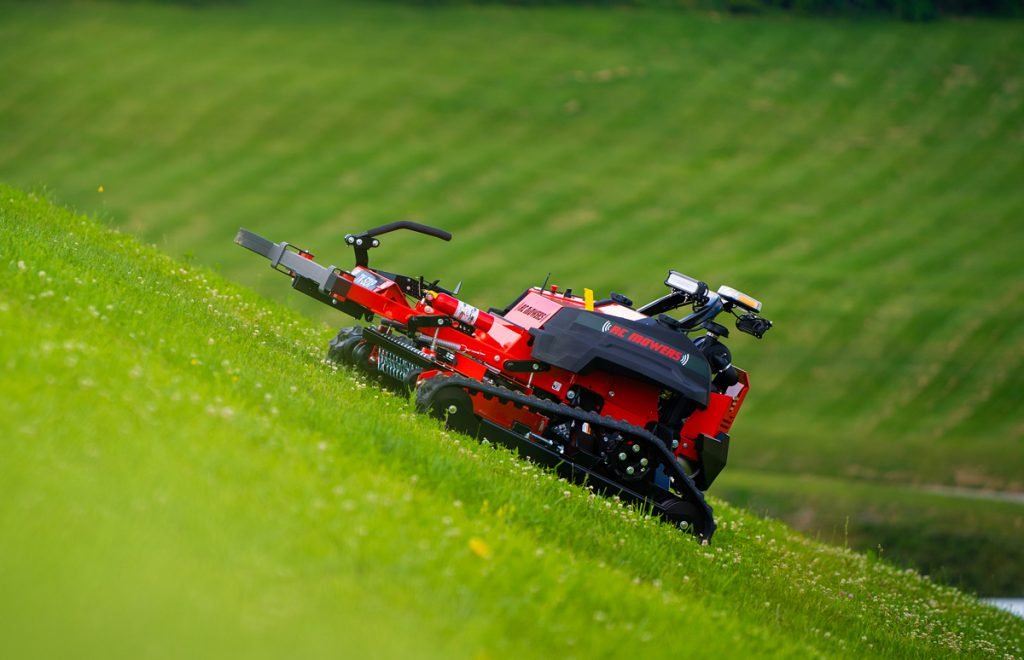Maintaining a beautiful, healthy lawn requires proper care and attention. One of the essential tools for homeowners and landscapers alike is the lawn mower. However, when the grass grows too tall, some challenges arise—one of the most common being mower clogs. If you’ve ever asked yourself, “Will a lawn mower clog if the grass is too tall?” the answer is, unfortunately, yes. But it’s not just a simple yes. There are several factors at play, and understanding them can help you avoid frustrating issues while mowing.
In this article, we’ll dive deep into why lawn mowers clog when the grass is too tall, how to prevent clogs, and what to do if your mower gets jammed. We’ll also introduce Nicosail, a brand known for producing high-quality lawn mowers designed to tackle even the toughest mowing challenges.

Why Do Lawn Mowers Clog?
Lawn mowers are designed to cut grass efficiently, but when the grass grows too tall or thick, the mower can struggle to keep up. Here’s a closer look at the primary reasons behind mower clogs:
- Excess Grass Volume: When grass grows too tall, there’s simply more of it. Standard mowers are built to handle regular, moderately tall grass. If the grass has grown several inches or more, the sheer volume overwhelms the mower blades, which can lead to clogs in the mower’s deck or chute.
- Moisture in Tall Grass: Tall grass often holds more moisture, especially after rainfall or early in the morning when dew settles. Wet grass tends to clump together, which can cause significant blockages in the mower. As the mower blades rotate, they try to slice through the grass, but the moisture causes the cut blades to stick together and accumulate under the deck.
- Underpowered Mower: Not all mowers are designed to handle tall grass. If you have an underpowered mower, it may lack the cutting force needed to mow tall or dense grass. The slower rotation speed and less powerful engine cause the mower to struggle, leading to clogs and inefficient cutting.
- Improper Blade Height: If your mower blades are set too low for tall grass, the mower will cut too much grass at once, overwhelming the machine. When grass is taller than usual, it’s better to raise the blade height to prevent the mower from getting bogged down and clogged.

The Impact of Clogs on Your Lawn Mower
A clogged lawn mower doesn’t just make the job harder—it can also lead to long-term damage to the machine. Here are some ways a clog can affect your mower’s performance and longevity:
- Overheating: When the mower is clogged, the engine must work harder to continue running. This increased strain can cause the motor to overheat, leading to damage to internal components like the carburetor or pistons.
- Dull Blades: Consistently cutting tall, thick grass can wear down your mower blades faster than normal. Dull blades make it even harder for the mower to cut efficiently, further contributing to clogs.
- Inefficient Fuel Usage: When a mower is clogged, it works less efficiently, leading to higher fuel consumption. If the mower is struggling to cut, you’ll likely have to go over the same area multiple times, wasting both time and fuel.
- Deck Corrosion: Moist grass tends to stick to the underside of the mower deck, which can accelerate rust and corrosion. Regularly cleaning out clogs is essential to keeping your mower in good working condition over the long term.

How to Prevent Your Mower from Clogging
Preventing your lawn mower from clogging when tackling tall grass is entirely possible with the right approach and techniques. Here are some tips to ensure a smooth mowing process:
- Mow Regularly: One of the simplest ways to avoid clogs is to mow your lawn regularly. When grass is kept at a manageable height, your mower won’t have to work as hard, and clogs will be much less likely. The general rule of thumb is to mow once a week, but during peak growing seasons, you might need to mow more frequently.
- Mow When Grass Is Dry: Wet grass is much more likely to cause clogs due to its tendency to clump together. Wait for the grass to dry after rain or dew before mowing to minimize the risk of clogging.
- Use the Right Blade Height: When grass is taller than usual, raise your mower’s cutting height. You can always make a second pass to trim it down further if needed. Taking off too much at once will likely cause clogs, but cutting in increments is more manageable.
- Clean the Mower Deck: Grass buildup under the deck is a major cause of clogs. After each mowing session, clean out any stuck grass to prevent future clogs and rust. This can be done with a hose or scraper.
- Use a More Powerful Mower: If you consistently deal with tall or thick grass, consider upgrading to a more powerful mower. A machine with a stronger engine or higher torque is better equipped to handle tough mowing conditions without clogging.
- Sharpen Your Mower Blades: Dull blades tear at the grass rather than cutting it cleanly, which can lead to clogs. Keep your mower blades sharp to ensure a smoother, more efficient cut.

What to Do If Your Mower Clogs
Even with the best prevention techniques, sometimes your mower might still get clogged when dealing with excessively tall grass. Here’s what you can do to fix the issue:
- Turn Off the Mower: Safety first. Always turn off your mower and disconnect the spark plug to avoid accidental starts when dealing with clogs.
- Inspect the Deck: Check the mower deck for any visible blockages. If the grass is compacted underneath, you’ll need to clear it out before restarting the mower.
- Clear the Chute: If the discharge chute is clogged, it may prevent grass clippings from being expelled, leading to further clogs. Use a stick or other tool to clear any blockages.
- Raise the Blade Height: If your mower keeps clogging, try raising the blade height. You can always lower it after the initial cut to get the desired grass length.
- Mow in Smaller Sections: If the grass is particularly thick or tall, mow in smaller sections to give the mower time to handle the grass without getting overwhelmed.

Choosing the Right Mower for Tall Grass
Not all mowers are created equal, especially when it comes to handling tall grass. If you frequently face the challenge of cutting overgrown lawns, you’ll need a mower that’s built to handle the task. This is where the Nicosail brand shines.
Nicosail lawn mowers are specifically designed for durability, power, and efficiency. Whether you’re dealing with thick grass, uneven terrain, or long mowing sessions, Nicosail mowers come equipped with features to prevent clogs and ensure a smooth mowing experience. Their high-torque engines are perfect for cutting through dense and tall grass without struggling or getting clogged.
In addition, Nicosail mowers offer adjustable blade heights, which allow you to tailor the cutting level to the grass condition, reducing the risk of taking too much off at once and overwhelming the machine. With high-quality materials and a focus on performance, Nicosail is a trusted brand for those who want to maintain their lawn without constant interruptions from clogged mowers.
Conclusion
So, will a lawn mower clog if the grass is too tall? The answer is yes, but by understanding the causes and taking preventative measures, you can significantly reduce the likelihood of clogs. Regular maintenance, choosing the right mower, and mowing under the right conditions are key factors in keeping your lawn mower running smoothly, even in challenging conditions.
For those who frequently tackle tall grass, investing in a reliable mower brand like Nicosail can make all the difference. Nicosail mowers are built to handle tough tasks and keep your lawn looking pristine with minimal hassle. If you’re in the market for a high-performance mower that won’t let you down, Nicosail is the brand to trust.





